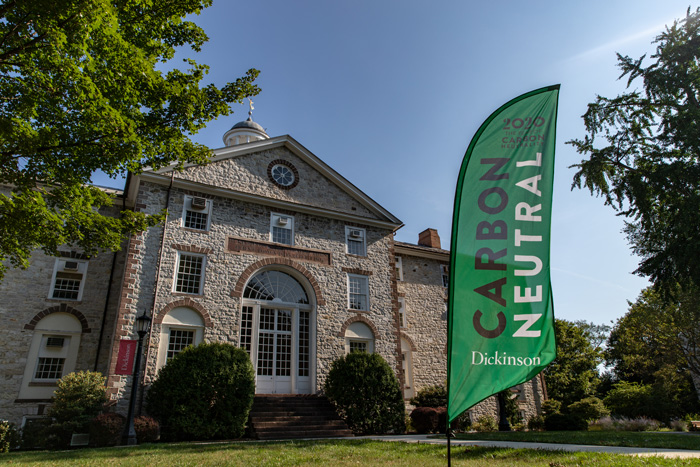Dickinson Among Founders of Academic Alliance to Support U.S. Climate Scientists

New Academic Alliance supports vital work of U.S climate scientists
Dickinson and nine other colleges and universities have formed a new alliance to support nominations of U.S.-based scientists and other experts to participate in the Seventh Assessment Report of the Intergovernmental Panel on Climate Change (IPCC). The group, U.S. Academic Alliance for the IPCC, is calling for U.S. researchers to self-nominate as experts, authors and review editors for the IPCC Seventh Assessment Report through a new application portal.
The IPCC nomination period opened in early March and will close in mid-April. Experts in climate research and practice who are U.S. citizens or based at U.S. institutions are encouraged to submit applications to USAA-IPCC via the alliance portal. USAA-IPCC will accept submissions through April 4, 2025. A webinar will be hosted on March 27 at 2 p.m. ET, for prospective experts to learn more about the nomination process through USAA-IPCC. Experts may be nominated by multiple organizations, and eligible individuals are encouraged to submit nomination materials through the U.S. government process as well as the USAA-IPCC.
Besides Dickinson, the founding members of USAA-IPCC are Colby College, College of the Atlantic, Indiana University, Princeton University, Rutgers University, Washington University in St. Louis, University of California San Diego, Woods Hole Oceanographic Institution and Yale University. Each of the founding members are formally registered as observers with the IPCC, a status that enables them to nominate experts to participate in IPCC science assessments. The alliance is hosted by the American Geophysical Union (AGU), the world’s largest association of Earth and space scientists.
USAA-IPCC aims to increase awareness of opportunities to participate in IPCC science assessments and to facilitate nominations of individuals with relevant expertise working in the United States.
“The science reports of the IPCC are the most authoritative, comprehensive and carefully reviewed sources of information about the changing climate system, the risks it poses and solution opportunities," says Associate Provost and Director of Dickinson's Center for Sustainability Education Neil Leary. "U.S. experts have been important contributors to past IPCC reports, and it's critically important for U.S. experts to be aware of the opportunity to be nominated to help write the next round of reports of the IPCC." Leary is a member of the USAA-IPCC steering committee and a participant in past IPCC science reports.
“This new alliance will help the U.S. maintain a preeminent position in global science-policy assessments," said USAA-IPCC steering committee chair Pamela McElwee, professor of human ecology at Rutgers University. "The benefits to U.S. researchers from involvement in the IPCC are tremendous, and we want to ensure that our scientists continue to play an important leadership role internationally.”
Since 1990, IPCC reports have assessed the latest developments in climate science, integrating physical science, impacts and adaptation and mitigation. The effort forms the basis for global climate action and involves hundreds of volunteer scientists from around the world. Previous assessment cycles have produced definitive reports on the state of climate knowledge that have played an important role in influencing policy. The report authors assess thousands of papers in what is essentially the world’s largest peer review, designed to deliver essential information for decision makers.
Dickinson and the IPCC have a longstanding collaborative relationship. In 2022, the IPCC received the Sam Rose ’58 and Julie Walters Prize at Dickinson College for Global Environmental Activism. That same year, the IPCC and Dickinson hosted the International Climate Symposium, a three-day event focused on solutions for more ambitious and equitable action on climate change. Leary was a leader of the IPCC’s 2001 report on climate change impacts, adaptation and vulnerability and has served as an author and review editor of other IPCC reports.
TAKE THE NEXT STEPS
Published March 21, 2025